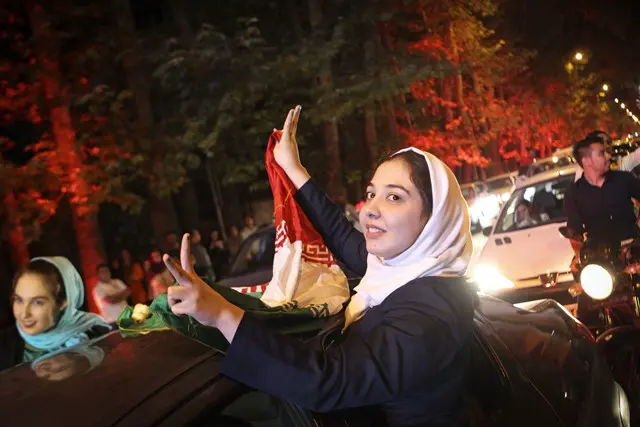Iran would manage to decrease tensions with the West "gradually" after the international deal on Tehran's nuclear program started to be implemented and Western sanctions were removed, an Iranian expert said.
The damaged relations between Iran and the Western states will improve in the post-sanction era, but the trend to normalize the ties, particularly with the United States, will be "gradual," Saeed Leylaz told Xinhua.
On Saturday, International Atomic Energy Agency (IAEA) Director-General Yukiya Amano said in a statement that "I released a report confirming that Iran has completed the necessary preparatory steps to start the implementation of the Joint Comprehensive Plan of Action (JCPOA)," an international deal on Tehran's nuclear program reached in July, 2015.
Shortly after Iranian Foreign Minister Mohammad Javad Zarif and EU foreign policy chief Federica Mogherini jointly announced the implementation day of the JCPOA.
The implementation places Iran in a juncture to reshape its international relations and to reform its economic development programs which have been offset by the West over the past years.
Iran's economic scene will be more competitive after lifting sanctions, that is, Western countries eye Iran's market alongside other regional and international partners, Leylaz said.
Europeans are eager to step into Iran's economy, and to offer Iran credit lines, he said, adding that Italy, Germany and France are ready to provide Iran with the investment and finance in its economic sectors.
Leylaz said that there are other areas which are proper grounds for Iran and the West. "For instance, the Western countries have realized that if they want to fight against international tensions, they should cooperate with Iran."
The U.S. and EU sanctions on Tehran's disputed nuclear program in the past years had cut the country's financial and economic ties with the international financial system and economic network. They had also put restrictions on foreign ventures to get engaged in Iran's energy and infrastructure development.
On Sunday, Iran's President Hassan Rouhani encouraged the foreign companies to get engaged in Iran's post-sanction economic programs, saying that "Iran is in need of foreign investment and technology and the situation is prepared for this."
"Our country has attractions, including security, stability, educated and capable human resources, trend for inflation reduction and GDP growth, and energy resources, which prepares the ground for investments," Rouhani said.
The Iranian president, however, cautioned on the immediate improvement of Iran-U.S. relations, saying that following the implementation of the JCPOA, "Iran and the U.S. will not have expansive economic relations."
Despite the agreements on the nuclear issue and Saturday's swap of prisoners, Tehran and Washington are still going through tense times in their relations. The efforts by radical elements on both sides have overshadowed the recent moves to settle distrust and disputes.
In the same voice with Rouhani over Iran-U.S. ties, Leylaz said that there are numerous problems between the two countries, and the enmities, which are fomented by the hardliners on both sides, are still enduring.
"We are trying to solve our problems step by step ... and generally speaking, we are slowly going to decrease our tensions between Tehran and Washington, but it will be a long way," he said.
 简体中文
简体中文

